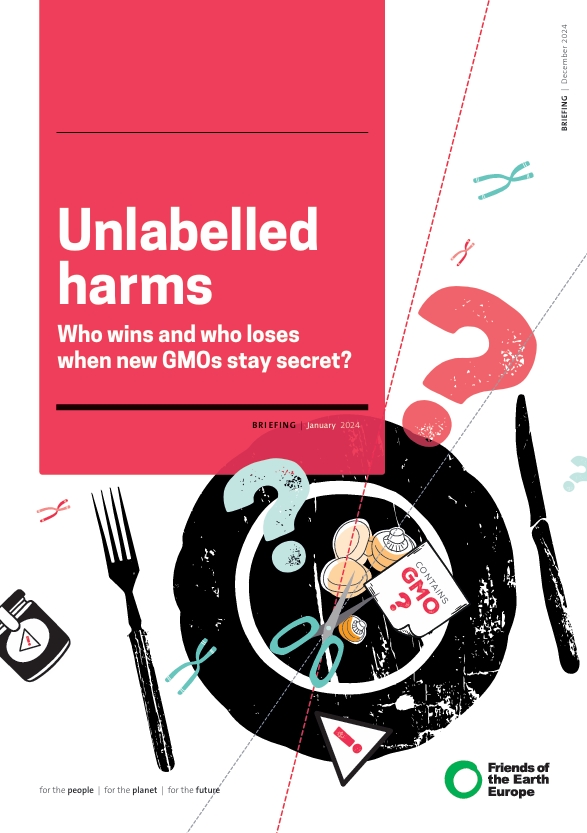
- This briefing is part of a series dissecting who will benefit from the draft EU law to deregulate new GMOs, and who will suffer from it.
According to EU Regulations, food and feed containing genetically modified organisms (GMOs) must be clearly labelled as such. This safeguards the rights of consumers to make informed choices about their food, independent from the actual risks.
The labelling of GMOs has had a vast impact on their demand. When confronted with food bearing the GMO label, European consumers have widely rejected them for more than 20 years. Supermarkets have responded by phasing them out and farmers no longer see the benefit of growing them. Various polls conclude that citizens also want the new generation of GMOs labelled. Whilst GM food is allowed in the EU, the market has clearly rejected it.
But big agribusiness has now found a way to circumvent this opposition and force unwanted GM food onto farmers’ fields and consumers’ dinner plates: pressuring EU lawmakers into abolishing the GM label for the new generation of GMOs (within the EU wide law to deregulate them).
The math is simple. If consumer labelling is dropped for new GMOs, farmers might cultivate new GM crops and Bayer, Corteva and Syngenta can increase their income by selling the patented new GMO seeds.
Read our new briefing to learn more about who stands to win and who stands to lose from a label deregulation of new GMOs.







